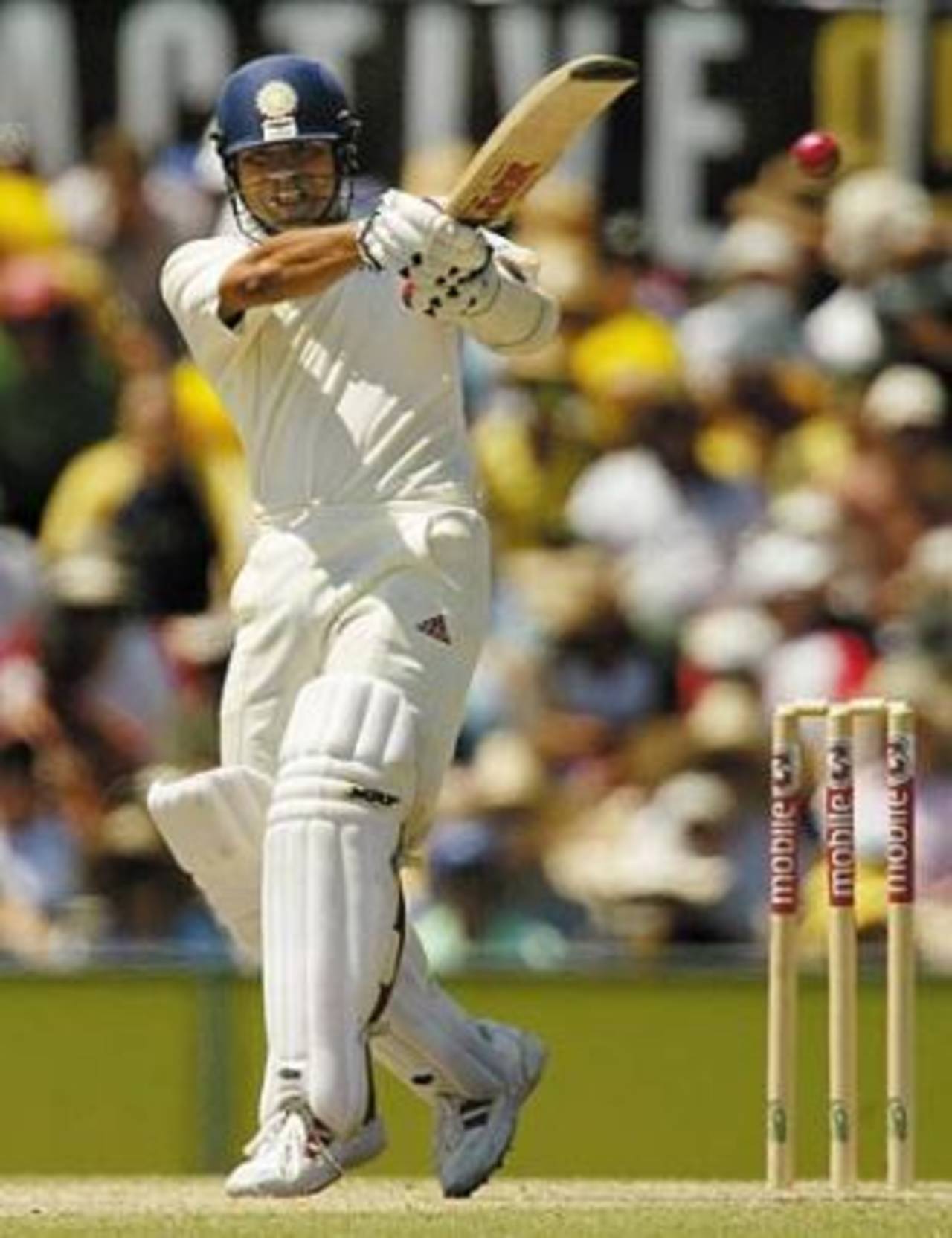The art of staying in the present
Concentration is about living in the moment - which unfortunately isn't as easy as it sounds

Did Tendulkar never once think of playing the cover-drive during his 241 in Sydney? Unlikely • William West/AFP
A few years ago I was selected to play in the Challenger Trophy (before I made my international debut). We had an interactive session with Geet Sethi, the billiards player, whose definition of concentration remains etched in my memory. He said that concentration is simply remaining in the present. The longer you can remain in the present, the greater your span of concentration. Sounds easy, right?
Most games of cricket go on for at least six hours at a time, with occasional breaks. Now concentrating for a few minutes at a time is quite difficult, let alone six hours. So the idea is to switch off after every delivery and then switch on before the next. Switching off means allowing the mind to wander away for a few seconds before getting it back on track. This is not restricted to only batting and bowling; fielders do it too. One needs to relax before starting to concentrate again.
Most players follow a set routine - adjusting the equipment, or something else - that acts as a trigger to snap them out of wander mode and back to the game. Greg Chappell would look at the crowd after playing every ball; MS Dhoni fiddles with his bat and gloves; I scratch the leg-stump mark on the pitch with my shoe; Jason Gillespie used to stop for a few seconds and take a deep breath at the top of his run-up.
While it's important to switch off and allow your mind to wander, one still needs to ensure that it doesn't drift too far away. For example, a captain has to still think about the field placements and plan his course of action, like bowling and fielding changes. A fielder is supposed to always be looking at the captain or bowler for instructions on any possible changes in the fielding position before starting to concentrate again. A batsman weighs his options of scoring runs off the next ball. I call this not-so-focused form of concentration "staying in the game".
Then there are some - we call them geniuses - who seemed to get into the zone at will: the state of mind where everything flows automatically. You don't consciously switch on or off, your mind doesn't wander into the past or the future, you're constantly aware of your surroundings and almost always play the ball on its merit or bowl where you want to bowl. We all have times when we get into such states, but to do it on a consistent basis is an art that only a few have mastered. Sachin Tendulkar seemed to get into the zone more regularly than the rest.
Honestly, I don't know for sure. I've gathered over the years that even the greatest minds can wander. Thoughts keep coming into your head regardless of whether you want them to. The best way to deal with them is to acknowledge their presence rather than trying to ignore them. Trying to push the thoughts away gets you involved and takes you away from the task at hand. When you leave them unattended, they disappear. Tendulkar's innings in Sydney in 2004 is the perfect example of not paying heed to the thoughts that try to intrude. He didn't play a cover-drive for most, if not all, of his innings of over 200, and I refuse to believe that the thought of playing the shot didn't cross his mind, especially once he was set.
Sunil Gavaskar once told me that when you reach a milestone your mind takes you to the ones you love most. You feel an immediate connection to those close to you who are watching you achieve the feat and your heart goes out to them and with it your mind too, which results in a loss of concentration
I used to think that staying in the present was important only at the beginning of the innings. After all, it's only at the start, when we're plagued with self-doubt, that we are most susceptible to failure; once we get that elusive start, everything falls in place. But I've learned that I was mistaken. A loss of concentration can occur at any point during an innings, and most often does when you're feeling good, like after going past a milestone, when you drop your guard a bit.
Bowlers and fielders, especially the ones close to the bat, often try to talk the batsman into playing a poor stroke. Few batsmen succumb to the tactic and lose focus; the majority have their own ways of dealing with it.
Former India opener Aakash Chopra is the author of Beyond the Blues, an account of the 2007-08 Ranji Trophy season. His website is here